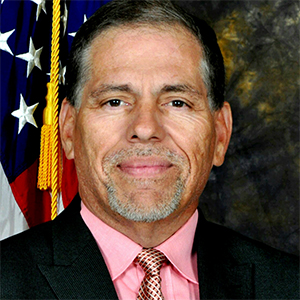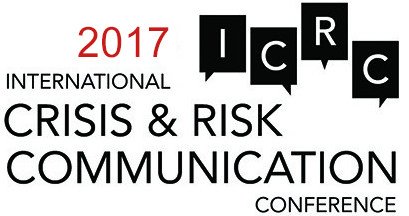
Hispanic Affairs Liaison
Hillsborough County, State of Florida, USA
Tony Morejon is Hillsborough County’s Hispanic Affairs Liaison and he brings 32 years of working in minority communities. His background as a social worker prepared him for understanding communities from the people to people level. He was instrumental in implementing the first bilingual hurricane preparedness conference in Tampa, Florida back in 2005. He also has 15 years of Spanish language television experience hosting and coproducing Hillsborough County’s Informes Latino. He has lead the push for hurricane and disaster preparedness in Latino communities for the past 10 years. Developed community outreach strategies for the diverse Latino communities from migrant farmers to urban Latinos from the inner city. Tony was selected by FEMA to participate in the Latino Leadership Summits 2010, 2011. He has presented various times at the Florida governor’s Hurricane Conference. Tony has a BA degree from The University of Tennessee.
2015
Pre-Conference Workshop
“Emergency Communication Effectiveness”
Features discussion on Multi-language Emergency Alerting Issues, to include co-presenters:
Tony Morejon, Hispanic Affairs Liaison, Hillsborough County, Florida, USA
Federico Subervi, Professor, Kent State University, Ohio, USA
Arlyn Rivera-Elizé, Multi-language Messaging Expert; Sr. Vice President, Access Consulting, Washington, DC, USA
The capability to provide effective, appropriate disaster alerts during major, sudden or logistically complex disasters involves prior advance planning to ensure that notifications can be delivered and understood rapidly and effectively by diverse audiences, and by individuals who will be experiencing heightened or prolonged stress.
This presentation outlines the stages of crisis and the crisis-stress factor, which may significantly impact human cognitive functioning. Types of specific informational needs at each crisis stage will also be outlined, and other considerations for effective message construction and delivery will be discussed. The phenomena of “first language reversion during crisis,” reported by a number of bilingual or multilingual individuals who have experienced crisis stress, will be recounted.
In the U.S. citizenry, growing multilanguage populations, including those with limited English proficiency, challenge the feasibility of providing effective emergency alerts during major widespread disasters. Recent crises such as Hurricane Sandy and other disasters have shown significant vulnerabilities in this area, in terms of effectively reaching all audiences with proper messages, especially when individuals become displaced, power is lost, and crucial messages simply must be received and understood.
Crisis and risk communication professionals such as public service providers, national and local broadcast professionals, and legal experts weighed in with the Federal Communication Commission earlier this year with concerns and issues on this complex topic, initially raised as a result of tragic implications during Hurricane Katrina. Many questions and challenges remain.
Appropriate language and vocabulary choice, as well as possible cultural contexts will be shared, along with several other foundational strategy suggestions for creating better emergency messages.
Participants in this workshop will form case study-based discussion groups, wherein they will collaborate regarding what tools and techniques they use, under which conditions, in order to effectively analyze audience demographics, prepare messaging strategy, and otherwise optimize their emergency messaging communication effectiveness.
Taking it to the Streets and Bringing it Home (Breakout Session, Wednesday, March 4th, 11-11:30 am)
Complete communities exist and thrive but yet are disconnected from the mainstream. They may be different ethnicities, speak different languages and have different beliefs from mainstream America but they too are at risk from disasters man made or natural. The difference may be how they react according to the information they receive or do not receive.
I will present a case study of how local county government was able to get the minority language communities engaged and informed. Thinking out of the box and a boots on the ground approach to community outreach has changed how people prepare for disasters.


